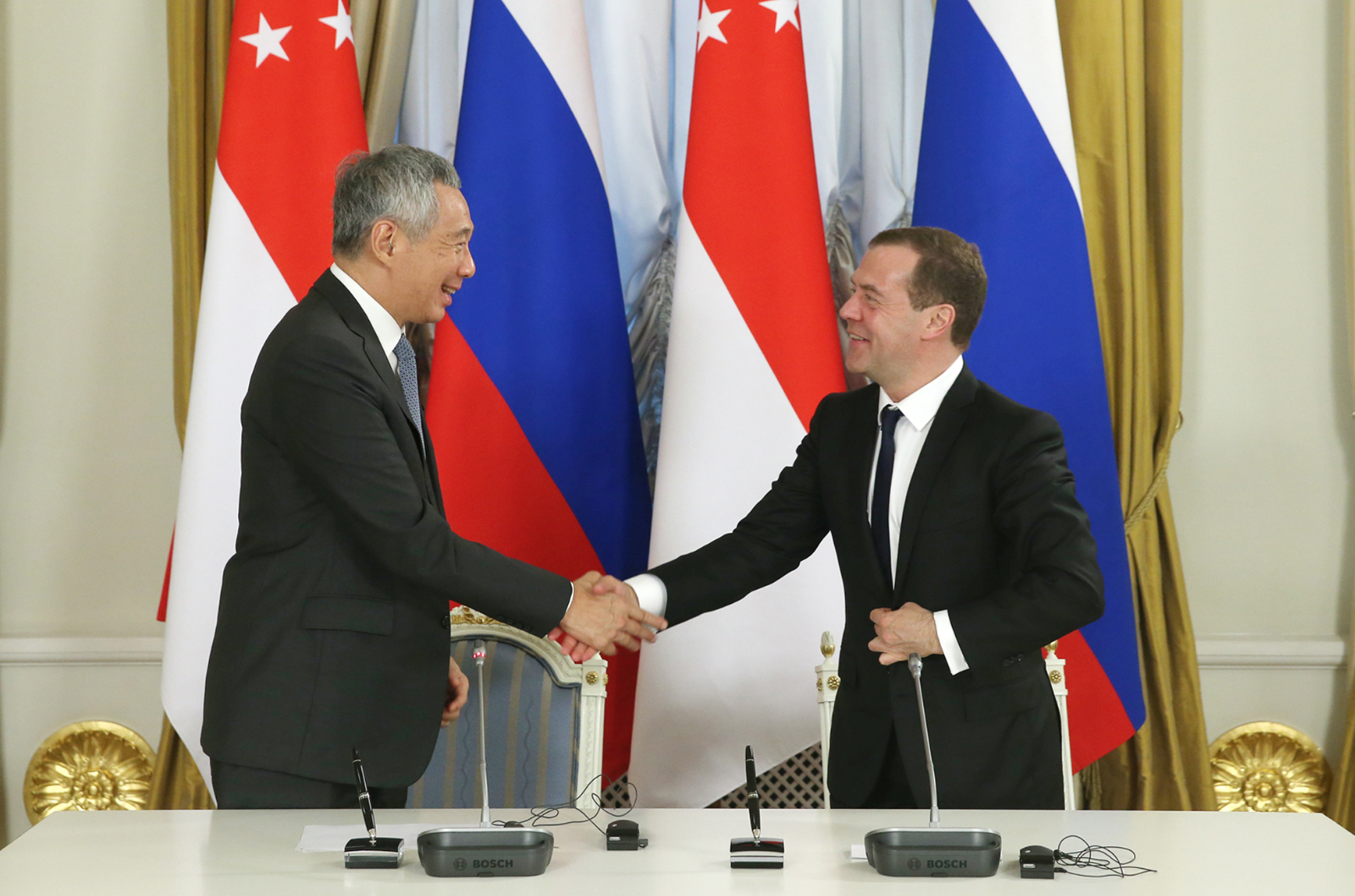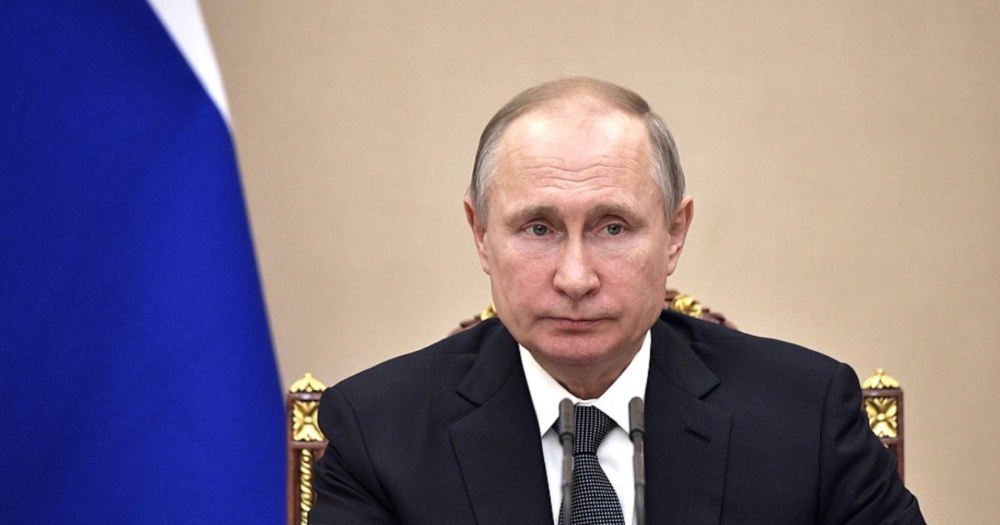Russia President Vladimir Putin will be visiting Singapore on Tuesday, Nov. 13 for the first time.
He will be meeting PM Lee Hsien Loong and also call on President Halimah Yacob.
During his two-day visit, he will also be meeting leaders attending the Asean Summit, held from Nov. 11 to 15, and attend the East Asia Summit (EAS) held from Nov. 14 to 15.
The EAS is an annual regional meeting between the Asean and its eight dialogue partners: Australia, Japan, India, China, New Zealand, the Republic of Korea, Russia and the United States.
Held after the annual Asean leaders' meetings, the forum, primarily led by Asean, is meant to foster greater regional cooperation and provide a platform to discuss key challenges facing the region.
Putin’s first time at the EAS
This year marks the first time Russia is attending the EAS on a presidential level since it joined in 2011 -- previously, Putin has always sent his Prime Minister, Dmitry Medvedev, to the meetings.
On the other hand, Putin has been attending APEC (Asia-Pacific Economic Cooperation) Summits in person almost every year starting from 2000 when he became president.
Putin's attendance at APEC summits is not unusual as it reflects Moscow's "transactional approach" to the region, according to Ian Storey of Iseas-Yusof Ishak Institute.
The regional economic forum allows Moscow to promote greater trade relations with the member economies.
After the Asean-Russia Summit held in Sochi back in May 2016, where both sides expressed their desire to promote the EAS as the region's principle summit for leaders, expectations for Putin to attend the EAS in September 2016 rose.
However, he was a no-show.
Here are the possible reasons for his decision to attend the summit this time round.
For economic reasons
According to Ian Storey and Anton Tsvetov of the Center for Strategic Research, Russia needs the Southeast Asian market to improve its economy, especially after getting hit by Western sanctions that were imposed after the Ukraine crisis in 2014.
Putin showing up at the Asean-Russia Summit and the EAS in Singapore -- and not the Apec Summit at Papua New Guinea, a country which Tsvetov says is of a lesser priority -- will help show his commitment to the Southeast Asia region.
Perhaps the venue was a deciding factor as well.
The year 2018 marks the 50th anniversary of diplomatic relations between Singapore and Russia.
Both analysts also say that Singapore, which is also the Asean chair this year, showed the most interest in boosting trade relations with the Eurasian Economic Union (EAEU).
The EAEU is a relatively new economic grouping that includes Russia and former Soviet republics Armenia, Belarus, Kazakhstan and Kyrgyzstan.
In 2016, Singapore signed a memorandum of understanding with the Eurasian Economic Commission (EEC), the executive regulatory body of the EAEU.PM Lee Hsien Loong -- who studied Russian at the advice of his late father Lee Kuan Yew — said he hoped that would pave the way for an FTA between Singapore and the EAEU in 2018.
 PM Lee with Medvedev in 2016 during his first bilateral visit to Russia. (Image via Prime Minister's Office)
PM Lee with Medvedev in 2016 during his first bilateral visit to Russia. (Image via Prime Minister's Office)
So far, Vietnam is the only country to have signed an FTA with the EAEU.
Perhaps this might change after the summit this year.
Making good on its "turn to the east" policy goals
Putin's decision to attend the EAS this time might be an indication that it is finally taking the region seriously.
Even with Russia's "turn to the east" policy -- first announced by Putin back in 2010 -- some analysts argue that was it was more talk than real policy.
This is because Russia had little to show for in terms of its commitment to the region since then, despite repeatedly telling Asean it is committed to deepening cooperation with the region.
Unlike the United States which has been sending its presidents to both the Apec and EAS meetings since 2015 (with the exception of 2017 and 2018 under the Trump administration), Putin has been skipping the EAS consistently.
He even failed to attend the 2015 Apec Summit.
However, that might change.
According to Storey, while Russia's foreign policy towards Asia has largely focused on China ever since Putin became president in 2000, the fear of becoming overly dependent on China, as well as China's economic slowdown, had led it to look for new opportunities in Southeast Asia.
Russia's foreign minister Sergey Lavrov also said in August this year that Russia welcomes "the development of [its] relations with Asean in every area", and they would like to "promote the Russia-Asean strategic partnership" following the Sochi Summit.
Time will tell if Russia will keep this policy up in the future.
Top image via
If you like what you read, follow us on Facebook, Instagram, Twitter and Telegram to get the latest updates.
